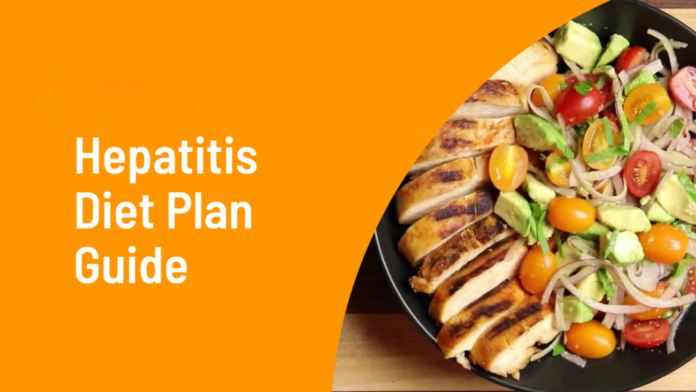World Hepatitis Day, observed on July 28th, is a momentous occasion when global attention is drawn to the prevention, diagnosis, and treatment of hepatitis. With an estimated 325 million people worldwide living with viral hepatitis, it is crucial to address this public health challenge. One of the critical aspects of managing hepatitis, especially hepatitis B and C, is adopting a proper diet plan that supports liver health and aids in the healing process. On World Hepatitis Day 2023, health experts unveiled the ultimate diet plan tailored specifically for hepatitis patients. This comprehensive diet aims to improve liver function, enhance the body’s immune response, and mitigate potential complications associated with hepatitis.
Understanding Hepatitis and Its Impact on the Liver:
Hepatitis is a viral infection that primarily affects the liver, causing inflammation and damage to the organ. There are several types of viral hepatitis, with hepatitis A, B, and C being the most prevalent. Chronic hepatitis infections can lead to severe liver diseases such as cirrhosis, fibrosis, and hepatocellular carcinoma. An individual’s diet plays a crucial role in either supporting the liver’s recovery or further exacerbating its condition.
The Hepatitis Diet Plan:
1. Limit Alcohol Consumption:
The first and most fundamental step in the hepatitis diet plan is to abstain from alcohol completely. Alcohol can cause additional harm to the liver and worsen hepatitis-related liver damage. It is essential for patients to understand that alcohol consumption must be strictly avoided to promote liver healing and prevent further complications.
2. Emphasize Hydration:
Staying well-hydrated is vital for hepatitis patients. Water helps flush out toxins and aids in the overall functioning of the liver. Aim for at least 8-10 glasses of water per day, and consider incorporating herbal teas and fresh fruit juices (without added sugars) to further support hydration.
3. Balance Macronutrients:
A balanced intake of macronutrients – carbohydrates, proteins, and fats – is essential for hepatitis patients. However, it’s crucial to opt for healthy sources of each category to ensure optimal liver health:
a. Carbohydrates: Choose complex carbohydrates such as whole grains (brown rice, quinoa, oats), legumes, fruits, and vegetables. Avoid refined sugars and processed foods as they can lead to increased insulin resistance and liver stress.
b. Proteins: Consume lean sources of protein like skinless poultry, fish, tofu, beans, and lentils. Protein is essential for repairing liver cells and supporting the body’s immune system.
c. Fats: Focus on healthy fats found in avocados, nuts, seeds, and olive oil. Minimize trans fats and saturated fats from fried and processed foods, as they can contribute to inflammation and liver damage.
4. Promote Antioxidant-Rich Foods:
Antioxidant-rich foods play a vital role in reducing oxidative stress in the liver. Include a variety of colorful fruits and vegetables, such as berries, citrus fruits, spinach, kale, and broccoli, in the diet. These foods are rich in vitamins A, C, E, and minerals like selenium, which help protect the liver from damage.
5. Incorporate Liver-Supportive Foods:
Certain foods are specifically beneficial for liver health. Garlic and onions contain sulfur compounds that aid in detoxification. Turmeric, a spice with powerful anti-inflammatory properties, can help reduce liver inflammation. Beets and leafy greens assist in liver cleansing and detoxification processes.
6. Monitor Sodium Intake:
Excess sodium can lead to fluid retention and worsen liver-related complications. Limit the intake of salty foods and processed snacks. Instead, opt for herbs, spices, and lemon juice to enhance the flavor of meals without adding excessive sodium.
7. Small, Frequent Meals:
Eating small, frequent meals throughout the day can help maintain stable blood sugar levels and prevent stress on the liver. Avoid large meals that can overload the liver’s metabolic processes.
8. Nutritional Supplements:
In some cases, hepatitis patients may require nutritional supplements to address specific deficiencies. However, it is essential to consult with a healthcare professional before starting any supplements, as they can interact with medications or exacerbate certain conditions.
Final Thoughts:
On World Hepatitis Day 2023, health experts presented an ultimate diet plan for hepatitis patients, aiming to promote liver health, strengthen the immune system, and improve overall well-being. This diet plan emphasizes limiting alcohol consumption, staying well-hydrated, and balancing macronutrients from healthy sources. Antioxidant-rich foods, liver-supportive foods, and careful monitoring of sodium intake are also vital components of the diet. Additionally, patients are encouraged to eat small, frequent meals and, if necessary, incorporate nutritional supplements under medical supervision.
It is essential for individuals living with hepatitis to adopt this diet plan as part of their comprehensive management approach, along with prescribed medical treatments and regular monitoring by healthcare professionals. By taking charge of their diet and lifestyle, hepatitis patients can significantly enhance their liver health and lead fulfilling lives even with this challenging condition. On this World Hepatitis Day, let us raise awareness about hepatitis, its prevention, and the significance of proper nutrition in managing the disease. Together, we can work towards a world free from the burden of viral hepatitis.





